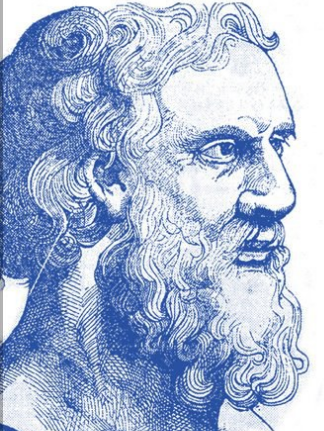Following Plato’s famous three metaphors, it was introduced to another question at the beginning – is justice beneficial or injustice beneficial to individuals?
I always feel that they have gone a long way to illustrate this argument and established a grand “Socratic universe” to explain it. If you don’t keep alert to the main line at all times, it’s easy to get caught up in it. I also just take this opportunity to check it.
Philosophers believe that it is better to magnify small things for better observation and analysis. So they enlarged “individual” into “city state”, “character” into “system”, and built a country from scratch with words.
Then, you must know that there are as many different types of people’s personalities as there are different types of political systems. Don’t think that political system is created from wood or stone. No, the political system is derived from the habits of citizens of the city; The tendency of habit determines the direction of everything else.
At first, it was just for individuals to meet their food and clothing, and then found that collective cooperation was more conducive to individual survival. With the protection of the necessities of the collectives and tribes, the demand of the city-states began to expand – not only “to eat and wear”, but also “to eat and wear warm” and “to eat and wear beautiful”. With the upgrading of demand, the corresponding diversity of citizens and occupations has increased, which also involves the issue of system and management – let a person do many occupations? Or let everyone do a job? For the city-state, the latter is naturally more effective and beneficial.
It involves who will be the “guardian” and “commander” of the city. The particularity of the guardians is not much discussed here. It seems that they have been brainwashed since childhood – they only accept the education of loyalty to the city; And the commander must be an absolute “knower” who knows the truth before he can make the most favorable choice for the city. After that, I spent a lot of time to describe true knowledge and vanity, namely “bed metaphor”, which is also an interesting part. Truth is eternal and unique. For example, there is only one concept of bed, while the physical bed is the concrete embodiment of the concept. As for the bed in the painting, it is not only an imitation, but also an imitation of the real object. It is two layers away from true knowledge and is regarded as something far away from truth and irrational.
Painting and general imitation art are creating works that are far away from reality when they are doing their work. They are communicating with the part of our mind that is far away from rationality, and they are not learning from him for the purpose of health and truth.
Return to the main line again. After the city was built, everyone did his duty. But “everything that has come into being will perish, and this kind of social organizational structure cannot be permanent, and it must be disintegrated”. The philosophers continued to discuss the four systems of the city-state – Sparta and Crete (advocating war), oligarchy (advocating wealth), democracy (advocating freedom), and tyranny (advocating slavery), and the development and cause and effect between the four systems. Correspondingly, the personal mind will also have similar changes.
In a city-state, change occurs when a party is supported by its sympathetic foreign allies. We young people are the same. When this or that desire in his mind is supported by the same or similar desire from outside, it will change his mind.
So, after understanding the life of a man who was first enslaved, then liberated with the help of everyone’s power, and finally became a tyrant who in turn enslaved others and was always in fear of being attacked, is the tyrant happy or unhappy compared with other people?
Let’s go back to the statement that caused us to discuss and kept us discussing here. The saying is: “injustice is powerful for a person who acts completely unjust but has the name of justice.” Is that right?
After a long circle, I finally got back to the point!
Injustice is like a monster, while justice is human. “A person with a name of justice who acts completely unjustly” is like putting the devil monster into a human shell, indulging in animal nature and weakening human nature. Is this beneficial to people?
What good can it do for a person who has done a bad thing without being found and thus evaded punishment? Didn’t he just get worse after escaping punishment? If he is caught and punished, won’t his animal part be tamed? Didn’t his human nature be released? Isn’t his whole soul in the nature world, which established the best part of it, and achieved temperance and justice (together with wisdom), thus reaching an invaluable state?
The soul questioning is so pure that people are ashamed of self-deception and evasion.
I sorted out the logic and outline of the whole debate for myself. However, it is a subject worthy of careful consideration to take out the side branches that emerge from the main body of the debate. It may not be conclusive, but the process of thinking and the feeling of “I can still think this way” are very interesting.
